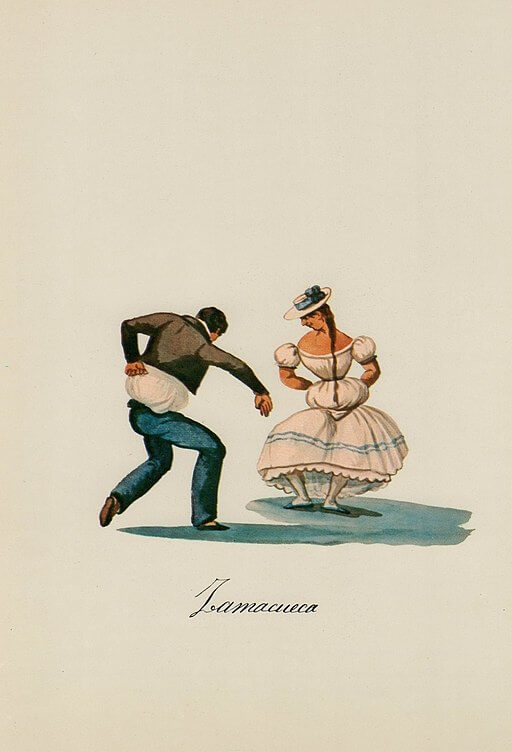How to be Happy in a Relationship: My 3 Learnings
the first secret of a happy relationship—without us properly and patiently framing what we want to say, our partner has no clue about what’s going on in our head!—Communicate Clearly.
That Sunday afternoon I had made a pot full of spinach soup. My idea was to sit in the sun, eat, and watch something fun with my partner. Afterward, I wanted to write. I asked him to play a good video. I thought he would put on something happy on Netflix. He didn’t. He played a superhero movie.
“But I don’t feel like watching superhero. What other options do we have?” I asked.
“Its a good movie.” He groaned.
“I’m not saying the movie isn’t good. I’m saying I don’t feel like watching a superhero movie.”
“All I have is this one, a murder thriller, and a science-fiction.”
Now you got to like the man for his choice of genres. I told him to play the murder thriller. Soon we were watching a tense US police officer in a gloomy office shout at everyone around him and on the phone. It was the recent movie The Guilty.
For one and a half hours we saw a dark screen and one guy calling everyone telling them they had to save the kidnapped woman and her children. The visuals stayed so same throughout I looked at the green forest around me and only heard most of the movie. Despite the slow repetitive conversations, the anxiety, and yelling, I understood the movie was about (spoiler alert) an officer who after seeing a psycho-killer woman’s journey had decided to plead guilty to the murder charges of a 19-year-old boy.
But I had wanted to see a happy movie. Maybe a village woman milking her restless cow while her kids played hide and seek. I needed fat sheep running all over the barn not armed US police officers screaming at each other. Comedy of life is always more entertaining than the tragedy of life.
By the time the film finished, I felt my entire Sunday had been taken away from me. But I hadn’t told my partner about my fantasy. Neither did I ask him to pause the film. As he had whined about my rejection of his superhero movie and his notion that I mock his choices was at the tip of his tongue, I had been quiet.
I may have framed my thoughts in a couple of sentences: Hey baby, I just want to see a happy funny movie or a short video or some documentary perhaps for half an hour to feel good about our lives, soak this sunshine, and get up all cheery so I can go back to my lonely job of a writer (which I love by the way). But I hadn’t said any of that.
I thought my partner understood. Because many times I have said sentences in the same context. And as I had told him I wanted to watch a shorter video, I assumed he would play a Seinfeld episode or some random short clip.
But clearly, he had forgotten what was said in the past. And how was he supposed to remember? What if he had played something and I didn’t like it.
So maybe for him, he took the best shot. Or maybe he took the most convenient shot. Nothing wrong with that either. Though for making liters of delicious spinach soup I was supposed to enjoy my Sunday more, he could also live his Sunday a little bit.
Neither one of us were wrong here. But we should have been clearer in our communication.
If we don’t pull our thoughts, ideas, and feelings into a taut string of carefully chosen words — our partner may not know what we want, what hurt us, or how we like our tea in the morning.
But translating our feelings into words isn’t always just inconvenient but also a sign of betrayal by our partner. How can he not know I like salt on my toast? Did she forget I like to gulp down my salad before getting onto my steak? Why did she start chatting with that supermarket staff when she knows I don’t like human beings?
The great philosopher, thinker, and visionary Alain De Botton says this inherent need to be cared for, understood, and heard without saying anything comes to human beings naturally because they are trying to replicate their childhood caregivers in their partners1. We spend so many years being nurtured by our parents that the idea someone would know everything about us is obvious to us.
Repeating in patient words until the other person understands is an objective task but we never take it as one. We not only argue over repeating something, but also about why can’t they understand us ever or that they don’t know us at all. We yell obnoxious words, go quiet, and slam the door behind us. We expect our partners to not only defend us in social situations but also give the right response on our behalves about our life plans.
“Why did you tell her we were staying in cities when we have always been putting up at small villages?” After a conversation with a Himalayan host, I chided my partner.
“How does it matter? We are only here with her for a week.”
“It matters. Next time either don’t say anything or tell how we live with local communities.”
I knew he was right. The moment we care about what others think of us we let the right path go out of our view (There are 13 other things we don’t have to care so much about). But I ensured he tell everyone we live in rural neighborhoods lest I forget our objective (of supporting the community while learning the locals’ ways).
The agony of misunderstanding is complemented by the glory of infinite love when we remember something our partner needs, likes, or avoids.
On New Year’s Eve, in a street-side restaurant of Chinatown of Burmese city Mandalay, my partner and I were arguing about a common friend. While we weren’t done yelling at each other, our Shan noodles arrived. In front of us were kept big bowls in which thin rice noodles, peanuts, and chopped greens were placed in three corners for us to mix. (Find other traditional Burmese foods in the linked guide.)
As we started eating, the server stood watching us. And then she started instructing my partner about how he was to mix everything well and almost with a spring in her feet moved ahead towards the bowl with her hands outstretched. I understood her intention. Before disaster could hit, I flung around my arm and told her he didn’t like to mix his food and could she please leave him alone. She left, a bit aghast.
I know at that moment my partner loved me more than he did when we had circled the fire seven times. I also feel this love overflowing out of me towards him when before going to bed I ask him if I need to pee, and he nods and says yeah, come we will go so you don’t wake up at night.
Overstretched, ridiculous, or painful, our expectations of our partners are definitely impractical. Unless the day comes when we can write a program covering all the possible scenarios in the world that gives them their possible reactions as output, we have to learn to speak our minds in a polite, comprehensible, and patient manner.

how to be in a happy relationship—the second rule—your partner may suggest an idea that seems logical to her. And that idea could be one of your nightmares. But that doesn’t mean she wanted to harm you, scare you, or hurt you. She is just suggesting!—Take a Suggestion For What It Is.
“What do you mean we can go that way? We went there yesterday and you had promised today we would explore that left trail which may take us into that vast plain.” I said with trembling lips. It was a Saturday morning in the Himalayas. We had headed out early.
My partner looked at me with glistening eyes. His face shrank and his mouth looked tiny.
“I was only giving an idea. We don’t have to do it.” He pleaded and asked for forgiveness.
“But at 12:03 yesterday I had told you I wanted to go here today. How could you not know? Were you looking into your phone, again?”
“Sorry I said anything. Let’s go to the left. I won’t suggest. Please let’s not ruin our day.”
“But why did you say so?” I said again.
I didn’t want to argue about a trivial suggestion for hours. But my body budget started going awry the moment I realized my partner didn’t know how important it was for me to walk on that left trail that day.
Our body budget is an estimate of how much energy we need to keep ourselves fed, safe, and alive as human beings (thanks to Lisa Feldman Barrett for enlightening the world). Doing something that makes us feel fulfilled brings contentment to us and replenishes our body budget2. Working, resolving a personal issue, or running to protect ourselves from a snake all drain our energy, and thus, our body budget.
So when we realize our partner — who we see as an extension of ourselves — is unaware of our deep desire, our mind starts to go in the fly or fight mode. Our body budget dips. Because if our partner doesn’t know what we need or what makes us happy, we would surely fall into danger or ruin our life sooner or later.
Think of it like this.
Actions that credit energy into our body: sleeping, eating, laughing, being with someone we love, hugging, kissing, sex, doing something we love, dancing, and other beautiful things in life.
Actions that debit energy from our body: threat, abuse, a stressful conversation, traffic, lack of sleep, hunger, sadness, misunderstanding, pain, fear, anxiety, fear of living an unfulfilled life, and other things that need us to solve them.
Everything was ruined for me in those moments. I couldn’t help making it clear to my partner how much of a disaster his one suggestion had felt to me.
But the catastrophe is even bigger when I suggest my partner drive our car on a narrow road. Though Google Maps tells me it is the only way to reach our destination, his brows furrow and his face tightens.
“I’m not going on that road. Why do you keep pushing me? You know how narrow this road is.” With every word his voice rises.
“But this is the only route. I was suggesting. You don’t have to go if you don’t want to.”
He continues to simmer, and I find it more convenient to keep my mouth shut in the fear of getting abandoned on a village road at sunset while stray dogs watch my every gesture.
When either one of us suggests to our partner an idea that is ludicrous to them, we should start getting ready for the hot lava that will sweep away everything on its way, including us, especially us.
In moments of misunderstood intentions, we feel our partners wanted to hurt us, scare us, or, worse, didn’t care for us. But the fact is they — like all other human beings — are only suggesting something that popped up into their head at an unfateful moment.
As many thoughts and ideas come to people in fleeting moments as the number of times a hummingbird flaps her wings in a second (figuratively) — and that’s okay. We have to consciously remind ourselves a suggestion is a suggestion and nothing more.

the third, but one of the most important rules of a happy relationship—our way isn’t the one right way always!—Be Open to Other Ways of Living.
Saucepans may take ten minutes to be cleaned. Papaya can be held in the air to be peeled. The first lesson of driving may imply only learning the controls and not moving your own car even an inch. Pea shells can be cut off with scissors because their ends are too hard to be pulled off. Sitting on the ground under the canopy of deodar trees picking up the wooden roses that have fallen from them isn’t everyone’s dream. Fruits don’t have to be brought from the shop when a few clicks would ensure a burly man shows up with a fruit packet on our door in thirty minutes.
We learn one way of doing things while growing up. At my parent’s home not squeezing the last bit of the toothpaste out of the tube or leaving the refrigerator door open for more than two minutes were sure harbingers of chaos. My mother rinsed empty milk pots into the tea pan to squeeze those last drops of milk even though we got twenty liters of milk from our two cows daily. My father turned off my ceiling fan on early summer mornings because he thought I must be cold, as he had been.
No matter how obnoxious the ways of our parents were, they become the standards for us and we spent years cementing them through the practice of living alone or with flatmates. Now I rinse milk packets, roll the rolling pin over tubes, and every light pinches my eyes.
But the moment you decide to spend your life with someone, you unknowingly give them this right to interfere and change (some of) your ways. They also come with their idea of a best holiday, paranoia about cockroaches creeping into their bed at night, and fear of losing their food if they don’t inhale it fast enough.
There isn’t just one right way. Our way is not the only way to do things. But we don’t have to change anything—yet. No one is threatening our values, family history, and beliefs. All we have to do is to be open to the blasphemous possibility that hot water showers could be taken on a summer day, duvets could be left unfolded on Sundays, and that credit card bill could be paid before the last date—that there is another way different from ours. (Here are other important things I have learned so far.)

The Takeaway
Our partner deserves to be treated well irrespective of how different his ideas seem from ours. The little nuances are little. We are better than kites who plunge over each other in the sky for a piece of meat. We fight like cats over righteousness. But we don’t have to. Remember this is the same partner we chose with love, admiration, and most importantly, respect. Momentarily, annoyance overpowers, and we lose the sense of the bigger picture: why we are all here. After finding faults and arguing, we should indulge in the brilliant things that life offers.
At a far-off place, you can see a wobbly head under a bright pink cap and another head bare under the sun. Hand in hand the two trot on a mud trail going down the mountain. In front is a valley. Further on the right, left, and further up on the mountain across the valley, pine and deodar trees stand tall.
Scrubby bushes stand aside now and guard your way because you have gotten scratched by them enough. Pink, purple, yellow, and white flowers smile at you. You walk on with your shoes tied tightly because you never know when an upturned stone or a slippery mud patch can throw your feet off the path making you slip.
Your shoes have been tied by the person next to you who has never left your hand no matter how many times you made him wait while you plucked wildflowers, how many evenings you made him walk against the thorny bushes scratching his arms and knuckles, and how many Sundays he held tight while you slipped.
And he asks, “When do we go home and eat? I’m hungry and all itchy.”
And you say, “Let’s just walk to that tree and we will turn” while knowing all the while he ate just an hour ago and you aren’t quitting at that pine.

Footnotes:
1. Alain De Botton appears frequently in my articles. All of Botton’s books, David Winnicott‘s studies (pediatrician, psychoanalyst, and psychiatrist), Lisa Feldman Barrett’s research, and of many more pioneers bring us to the same conclusions – our childhood sets the way for our adulthood. If we were brought up by caregivers who fulfilled our needs before we had uttered a word, we would expect similar care/attention even when we aren’t a child. [back]
2. I have written in detail about the body budget phenomenon first researched and documented by the neuroscientist Lisa Feldman Barrett in my article on what are emotions. Please head to the article to know more. The book How Emotions Are Made by Lisa is a must-read for anyone interested in the connection between mind, body, and almost everything we do, think, and feel.[back]
What are some of your secrets of happy relationships? Leave a comment.
Feature Image Courtesy: Hans Ole Brasen, Public domain, via Wikimedia Commons
*****
*****
Want similar inspiration and ideas in your inbox? Subscribe to my free weekly newsletter "Looking Inwards"!


“ But the moment you decide to spend your life with someone, you unknowingly give them this right to interfere and change (some of) your ways. Because they also come with their own flakes of soap bars, paranoia over running equipment, and eating habits such as gulping their food as if you will run away with it.”
Elegant piece Priyanka 🙂
Thanks, Starak. I’m so glad you enjoyed it 🙂
An extremely eloquent post. I am so glad to have come across your blog while randomly browsing through homestay experiences.
I really liked the fact that although the main points are written to emphasise what is correct, you empathised why the ‘other’ partner would act in an incorrect way.
Both the books mentioned in footnotes have been referenced quite a few times in Huberman’s podcast. In case you do listen to podcasts and you haven’t done so already I will definitely recommend you to go through his channel.
i really liked the article , keep it up
it takes a life time to learn and more importantly apply all this even if you know its true thats why we learn it the hardway
Hello Priya…
https://www.onmycanvas.com/how-to-maintain-happy-relationships/
i loved this article…you are so gifted…being able to put your thoughts into words
while i am still struggling with nouns and verbs ..lol..keep up the good work…
i am a long time subscriber
takecare…
Thank you, Punith. I’m glad you enjoyed the piece. Keep reading 🙂